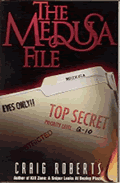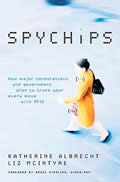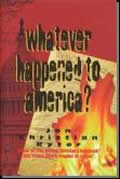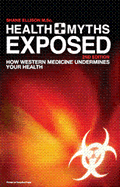Other
Ryter
Articles:
The Two Kerry's:
War Hero or
Traitor?
"Men in Black" The Cult of The Judges
JUDGE
EXCEEDS AUTHORITY BY RULING AGAINST NSA
PART
2 of 2
By Jon Christian Ryter
August 23, 2006
NewsWithViews.com
With respect to the First Amendment, the Constitution says "Congress shall make no laws respecting an establishment of religion, or prohibiting the free exercise thereof..." There is no ambiguity here for lawyers to trip over. The ambiguity comes from the attempt of the courts to supplant the First Amendment with Articles 13 and 14 of the UN Covenant on Human Rights. The increasingly social activist federal judiciary, which has largely been internationalized, has no problem supplanting an inherent right with a conditional one.
As you examine the quality of the liberty found in the Constitution of the United States and the "freedom" granted by the UN Covenant on Human Rights you can see the difference between natural rights and conditional rights. Under the Constitution, we see that "...Congress shall make no law respecting an establishment of religion, or prohibiting the free exercise thereof..." The Founding Fathers placed all of the restrictions on the government. Somewhere along the road to the toll road to Utopia�thanks to the ACLU and activist federal judges like Taylor�the meaning of the First Amendment has become so fuzzy that, now, all of the restrictions are placed on the citizen who no longer possesses an inherent right to practice the free exercise of religion. The federal courts�backed up by the US Supreme Court�now interpret religious freedom in the manner of the privileges described in Article 13 of the Covenant on Human Rights: "Freedom to manifest one's religion or beliefs may be subject only to such limitations that are prescribed by law..." All of the prohibitions are placed on the people. None are placed on the government. What's wrong here? Activist judges like Anna Diggs Taylor.
The ACLU sought legal cover not so much from the fact that it appeared that the Bush-43 Administration had exceeded its legal authority by eavesdropping without a FISA judge-authorized warrants under Title III of the Wiretap Act (that is part of the Foreign Intelligence Surveillance Act [FISA]), but rather, it wrapped itself in a constitutional issue on a mistaken belief that the NSA violated the free speech rights of the American people because, with the NSA eavesdropping on international calls, those people contacting clients or sources associated with terrorist organizations in Europe, Asia or Central or South America, would not feel comfortable speaking "freely" to them on the telephone or by email.
Although none of the plaintiff's in American Civil Liberties Union, et al v National Security Agency, et al offered any evidence to show they had been injured by not being able tospeak freely to their foreign contacts because of the NSA wiretaps, CAIR probably could probably have made a good case to support the contention that they had been hamstrung by the NSA. As she announced her decision, Taylor said: "There are no hereditary kings in America�and no powers not created by the Congress...The irreparable injury necessary to warrant injunctive relief is clear," she said, "as the firsst and fourth Amendment rights of plaintiffs are violated." In point of fact, they were not.
As the lawyers for the NSA pointed out, the claims of the defendants should have been dismissed because the plaintiffs did not establish a prima facie case. The claims of alleged injury by the plaintiffs were too tenuous, not at all concrete nor particularized. In the core of the plaintiff's filing, the ACLU contended that the government interfered with their ability to talk with sources, locate witnesses, engage in advocacy and communicate with people outside the United States. McKelvey, Diamond and Rubin argued that their jobs entail extensive research in the Mideast, Africa and Asia and, in that research, they must communicate with individuals abroad who are viewed by the US government as terrorist suspects or are associated with known or suspected terrorist organizations. If that is so, then each of them needs to understand that terrorists don't get a waiver because an American reporter wants to interview them off-the-record.
The ACLU claimed in their filing that the NSA's surveillance "...caused clients, witnesses and sources to discontinue their communications with plaintiffs out of fear that their communications will be intercepted. They also allege injury based on the increased financial burden they incur in having to travel substantial distances to meet personally with their clients and others relevant tot heir cases." Taylor noted in her decision that "...[t]he ability to communicate confidentially is an indispensable part of the attorney-client relationship."
Let's keep this in perspective, folks. When attorney's fly to visit clients in another country, they are "on the clock" the whole time. Not only does the client pay the plane fare, they also pay $200 to $500 an hour�or more�for all the time the attorney is away from home. It may cost the defendant a few bucks more, but it doesn't cost the attorney more. He profits from a premium rate while out of the country. As far as the writers are concerned, the "clients," (i.e., terrorist organizations) are clueless that Echelon is monitoring their calls only if they haven't been reading American periodicals for the past couple of decades. And, since they don't have an American constitutional right to privacy, suspected terrorists or terrorist organizations, or known or suspected terrorist States, should not have an expectation of privacy�nor should those who wish to communicate with them. Nor should any federal magistrate be allowed to construe that such people suffered "...irreparable injury" because the US government used FISA wiretapping protocols to eavesdrop on non-Americans in foreign countries. The expectation of privacy is a right American citizens talking with other US citizens should expect. In the event the government wishes to intrude on those conversations, they are required to secure a warrant from a judge. But extending the protection of the Constitution to foreigners who would use that protection to harm us is ridiculous. And, placing a shield up so that agendized Muslim groups like CAIR can communciate with their compatriots in the Mideast without fear of having their conversations monitored by national security or intelligence agencies is equally as stupid.
When the ACLU v NSA decision was handed down, White House spokesman Tony Snow said that the Bush Administration's program�implemented immediately following the 9-11 terrorist attacks�is "...firmly grounded in law and regularly reviewed [by the FISA court] to make sure steps are taken to protect civil liberties." Snow added that the Administration could not disagree more with Taylor's ruling. "Last week," he added, "America and the world received a stark reminder that terrorists are still plotting to attack our country and kill innocent people. United States intelligence officials have confirmed that the program has helped stop terrorist attacks and saved American lives. The program is carefully administered, and only targets international phone calls coming in or out of the United States where one of the parties on the call is a suspected al Qaeda or affiliated terrorist. The whole point is to detect and prevent terrorist attacks before they can be carried out. That's what the American people expect from their government, and it is the president's most solemn duty to ensure their protection."
ACLU Executive Director Anthony Romero told reporters that Taylor's decision was "...another nail in the coffin in the Bush Administration's...strategy in the war on terror." Liberal Vermont US Sen. Patrick Leahy�the ranking Democrat on the Senate Judiciary Committee said the Taylor opinion simply highlighted one more "...unfortunate example of how White House misdirection, arrogance and mismanagement [has] needlessly complicated our goal of protecting the American people." (I'm personally amazed that Leahy, like House Minority Leader Nancy Pelosi who called Taylor's decision a "repudiation of the Bush Administration", had the gall to include himself with those who are trying to protect the American people.)
The decision that came from Judge Taylor's court was expected. That was, after all, why the ACLU judge-shopped her courtroom. She's a hard-left civil rights political activist whose decision was a sure-thing before the case was filed. Taylor has been a judge whose advocacy was more important than justice�at least since 1998. That year an affirmative action case involving the University of Michigan�where her husband, Martin Taylor, was a Regent was on the docket. As Chief Judge, Taylor tried to pull rank and take the case away from Judge Bernard Freedman who was assigned it in a blind draw. Taylor did not want the case in Freedman's court because the jurist was not an advocate of affirmative action. Attempting to wrest the case from him, she justified her heavyhandedness to friends by saying "...[w]e can't have somebody that's biased that way. We need somebody like me, biased my way, towards affirmative action. That's what's fair in my courtroom." Bias is good in Judge Anna DiggsTaylor's courtroom� providing its leftwing bias.
|
Subscribe to the NewsWithViews Daily News Alerts! |
Taylor agreed not to hear the case only when Freedman�a Reagan appointee�went public and told the media what she had done. When she was forced to reassign the case, she tried to pass it to another affirmative action judge by consolidating it with a case dealing with the University of Michigan's undergraduate admission's project that was assigned to Judge Patrick Duggan. In the end, Freedman heard the case. But by a 5 to 4 vote, the 6th US Circuit Court of Appeals upheld the existing affirmative action program of the University of Michigan�which is what Taylor wanted. Because of the judicial improprieties in Taylor's court, the Wall Street Journal raised the question in its June 18, 2002 issue of whether or not Congress would launch an investigation of the federal court's handling of the case. They didn't. Biased judges on the federal courts didn't seem to bother Congress. After all, they made the mess. And besides, when their friends need to judge-shop, its nice if they know where to go to get the verdicts they want. For part one click below.
Click
here for part -----> 1.
� 2006 Jon C. Ryter - All Rights
Reserved
[Read "Whatever Happened to America?"]
Sign Up For Free E-Mail Alerts
E-Mails
are used strictly for NWVs alerts, not for sale
Jon Christian Ryter is the pseudonym of a former newspaper reporter with the Parkersburg, WV Sentinel. He authored a syndicated newspaper column, Answers From The Bible, from the mid-1970s until 1985. Answers From The Bible was read weekly in many suburban markets in the United States.
Today, Jon is an advertising executive with the Washington Times. His website, www.jonchristianryter.com has helped him establish a network of mid-to senior-level Washington insiders who now provide him with a steady stream of material for use both in his books and in the investigative reports that are found on his website.
E-Mail: BAFFauthor@aol.com
ACLU Executive Director Anthony Romero told reporters that Taylor's decision was "...another nail in the coffin in the Bush Administration's strategy in the war on terror."














